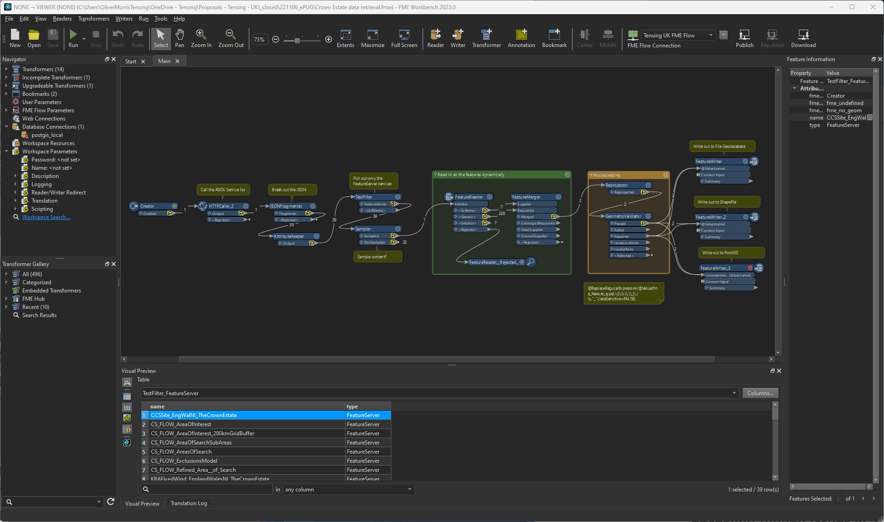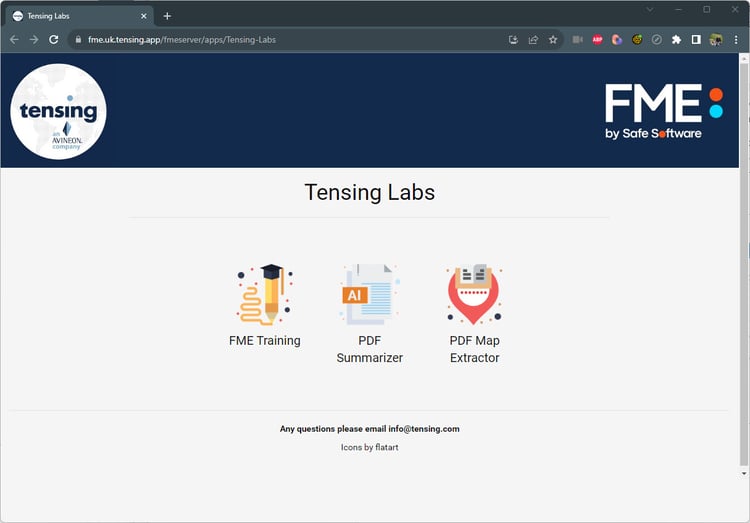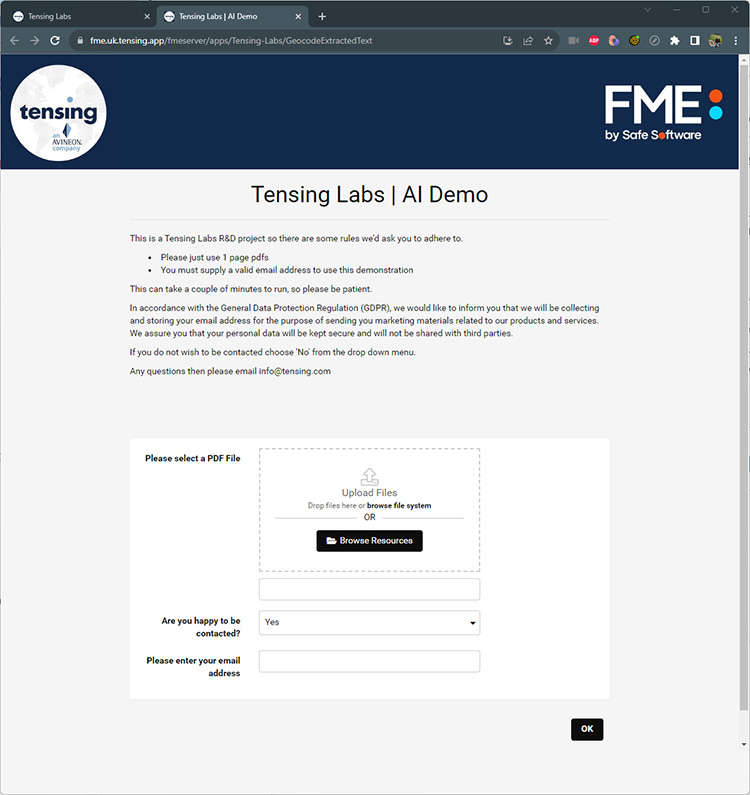Low-Code/No-Code: Unleashing the Power of FME

Oliver Morris
Business DirectorHaving an efficient and flexible system for data extraction, translation, and loading (ETL) is essential to keep your data pipelines running smoothly. When tasked with designing and building systems involving data extraction, translation, and loading (ETL), low-code/no-code tools like Safe Software’s FME Form and FME Flow start to shine.
My name is Oliver Morris and I am a Business Director for Tensing UK. In this blog post, I'll delve deeper into the tangible benefits of low-code/no-code tooling and highlight their capacity to enable swift creation and iteration of proofs of concept (POCs). I'll also discuss their ease of use and flexibility, drawing some enlightening comparisons with the Great British Bake Off.
Low-Code/No-Code: More Than a Buzzword
Low-code/no-code is not a new paradigm. Ever since tools like Excel were introduced, we've been manipulating tabular data with macros or embedded VBA snippets. Companies like Safe Software have expanded upon this foundation, providing more comprehensive and versatile tools.
FME Form and FME Flow from Safe Software are two excellent examples. These tools simplify the process of building spatial integration solutions and carrying out ETL tasks thanks to their visual building block methodology. Each transformer in an FME Workspace serves as a piece of a larger puzzle, stringing together the various stages of a data transformation process. This visual and intuitive approach significantly lowers the entry barrier and makes it easy for users of all skill levels to get started.
Image 1: Example of an FME Workspace. Text continues below image.

Baking Analogy: Coding vs. Low-Code/No-Code
To make this concept more relatable, let's think of the Great British Bake Off. In each episode, the contestants are tasked with baking a cake from scratch, which is quite similar to coding a solution from the ground up. They have to select the best utensils, choose the right cake tray, and even set up the mixer, all before they even start mixing the ingredients.
In contrast, using a no-code/low-code solution is akin to having a fully prepared kitchen, with all the utensils and ingredients ready at hand. This allows the contestants (or the developers, in our case) to focus on the main task, guided by a well-structured recipe (or a set of pre-built functions and features).
Advantages of Using FME as a Low-Code/No-Code Tool
What sets FME apart from other low-code/no-code tools are its user-friendly features and capabilities, which make it accessible to a wide range of users. Here are a few standout features that make FME a great choice:
- Feature caching: This allows you to preview the data output at each stage of the transformation process, enabling you to troubleshoot and refine your approach as you go.
- Self-documenting capabilities: The process of building a workspace in FME is inherently self-documenting. As you construct your data transformations, you're automatically creating a clear map of your process, which makes it easier to understand and refine your work.
- Bookmarks: These help you break down complex workspaces into manageable sections. You can move groups of transformers related to the same task as one unit, and even reuse and repurpose these groups in different projects.
Image 2: FME Flow Gallery App. Text continues below image 3.

Image 3: FME Flow Gallery App. Text continues below image.
Who Benefits from No-Code/Low-Code Tools?
If your work involves repetitive, low-level tasks that involve wrangling data from different spatial data sources, low-code/no-code tools can significantly improve your productivity and efficiency. These tools can free up your time, allowing you to focus on more challenging and high-value tasks.
Moreover, low-code/no-code tools are excellent for quickly developing proof of concept or minimum-viable product solutions. For instance, with FME Flow, you can create FME Apps (shown below) that showcase the possibilities of a particular data transformation or integration.
Those who thrive in a fast-paced, ‘move fast and break things’ environment will find the flexibility and agility of tools like FME particularly beneficial.
So, if you're finding yourself overwhelmed by complex data challenges or if you're looking to enhance your ETL processes, don't hesitate to explore the possibilities offered by low-code/no-code tools like FME. They could be the change you're looking for.
If this blog post resonates with your current data or workflow challenges, get in touch.



.png)
